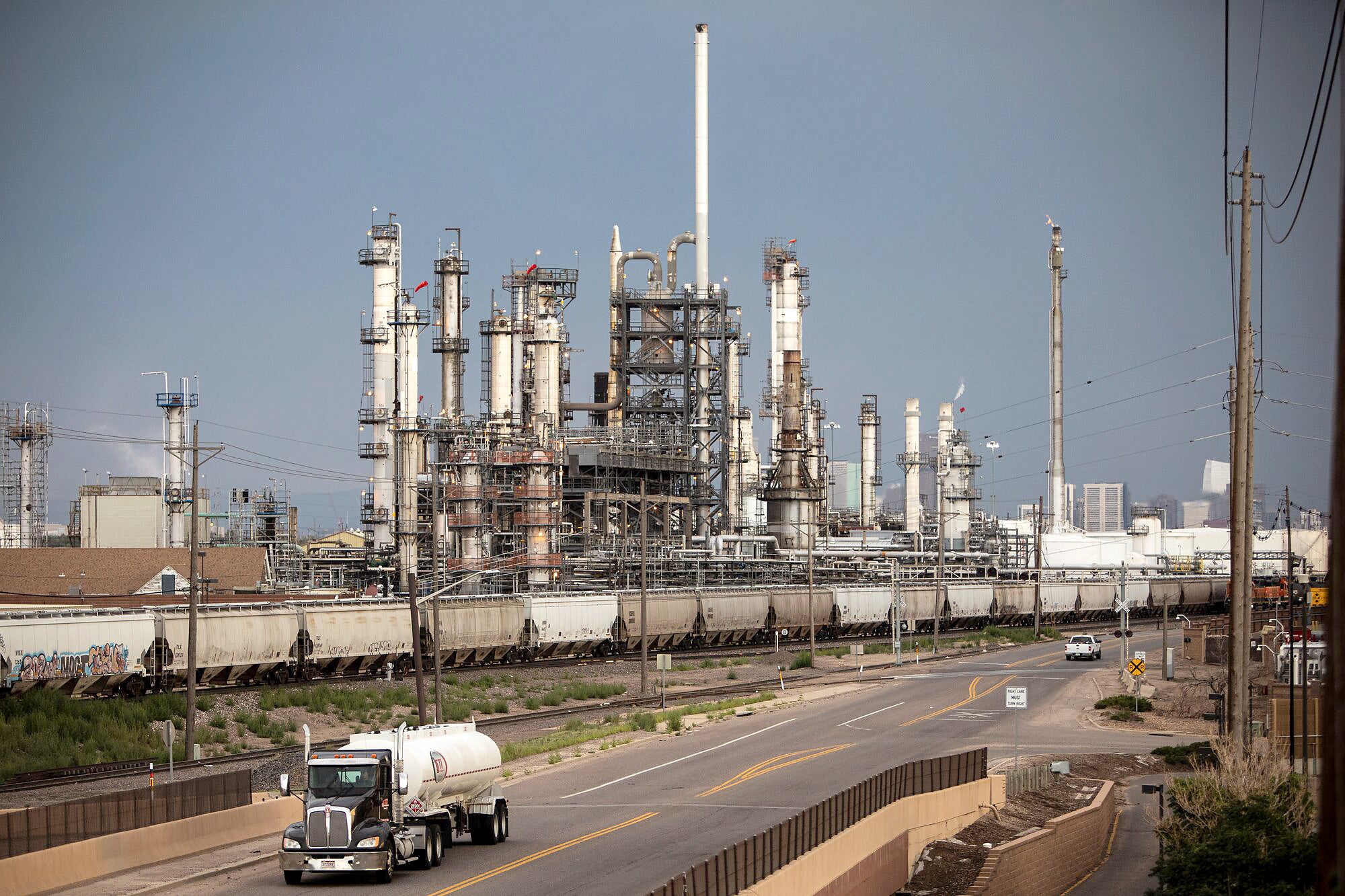Community Groups Left in the Dark on Suncor Fenceline Monitoring Settlement
State provided little time for intervening groups to review key documents before approving settlement
Contact
Community and conservation groups this week filed a response to the recently-announced Suncor Energy fenceline monitoring settlement agreement, expressing frustration and concern over the plan approved by the Colorado Air Pollution Control Division. In their response, intervening groups noted that the state did not provide adequate time to review lengthy documents before announcing the settlement; that major issues remain with the final plan, including delays and a failure to monitor the refinery’s entire fenceline; and that the enforceability of the settlement agreement is in doubt.
In early February, the Air Pollution Control Division announced the settlement in a lawsuit brought by Suncor regarding monitoring requirements for its Commerce City refinery. In late 2022, community and conservation groups intervened in the suit to maintain fenceline monitoring requirements for the Suncor refinery.
“The state, Suncor, and this settlement are just throwing money around with no benefits going back to the communities that deserve it in healthcare and long term enforceable protections,” said Renée M. Chacon, co-founder of Womxn from the Mountain, EJ Action Task Force member, Commerce City Council Womxn. “How invalidating and shameful to generations of disproportionately impacted communities for our state to continue being cowards to industries and regulatory systems that bully our communities through lawsuits, and kill our quality of life slowly without any real actions protecting our human right to a safe and healthy environment.”
In their response, the groups allege that the settlement happened in the dark and without adequately consulting the communities that will be directly impacted by the fenceline monitoring plan. The groups state that interveners were not provided adequate time to review lengthy documents. Suncor and the division gave the groups just over a day to review these documents and determine their position.
“Our system is broken,” said Ean Tafoya, Colorado state director for GreenLatinos. “Community worked for years to bring about monitoring, which in itself only observes pollution. After passage Suncor sues and reaches a settlement for less protections. Suncor regularly exceeds its air pollution permit limits, dumping toxins into the river and air, yet continues to use their resources to challenge accountability. Our leaders must act to change this broken system.”
The groups also note that issues remain in the final monitoring plan. For example, Suncor was supposed to begin monitoring its fenceline in January 2023 but the full monitoring plan will not be implemented until December 31, 2024. The plan also does not require Suncor to monitor its entire fenceline, as it includes a gap in the monitoring network along Brighton Boulevard.
The groups also question the enforceability of the settlement agreement. Typically courts issue and approve consent decrees that provide higher levels of accountability, but the division and Suncor intend to dismiss the case after the Court approves the settlement agreement. The interveners note that this is another example of Suncor being let off easily, and there is growing concern that the company will be able to weaken enforcement.
“The North Denver and Commerce City communities deserve transparency regarding the toxins emitted by the Suncor refinery,” said Robert Rigonan, associate attorney with Earthjustice’s Rocky Mountain Office. “The settlement agreement adopts a fenceline monitoring plan that is imperfect, prioritizing Suncor’s interests over the communities’ concerns. While it is a modest stride toward the accountability promised to these communities by the Colorado legislature, more must be done to ensure the plan makes a meaningful impact on the ground.”
“The health of our communities continues to be jeopardized while the system allows Suncor to proceed with inadequate monitoring to ensure the public’s safety,” said Megan Kemp, policy and advocacy manager with Healthy Air and Water Colorado. “Coloradans deserve more accountability, more action, from major polluters like Suncor.”
“Despite clear laws and a great deal of engagement and support from affected communities, CDPHE, the agency that is supposed to protect Coloradans against pollution, has once again caved in to Suncor, letting the polluter flout laws and even refuse to undertake something as basic as monitoring toxic pollution,” said Ramesh Bhatt, chair of the Colorado Sierra Club’s Conservation Committee. “Without a fundamental change in CDPHE’s approach, vulnerable communities that have been subject to toxic pollution for decades will continue to suffer.”
Earthjustice represented GreenLatinos, the Elyria-Swansea Neighborhood Association, Healthy Air and Water Colorado, Womxn from the Mountain, Conservation Colorado, and Sierra Club.

Additional Resources
About Earthjustice
Earthjustice is the premier nonprofit environmental law organization. We wield the power of law and the strength of partnership to protect people's health, to preserve magnificent places and wildlife, to advance clean energy, and to combat climate change. We are here because the earth needs a good lawyer.